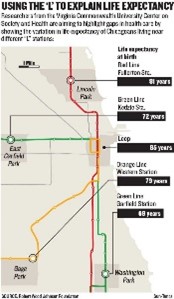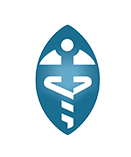should thwart social-emotional violence as well
By The Rev. Dr. Ebony D. Only
 On October 22, 2023, we determined safe and thriving communities to be the answer. That was when I sat alongside Dr. Judi Savage, M.D. from Advocate Aurora Health and Traci Simmons, DrPH(c), MPH, CPH, CHES Director, Community Health and Engagement for RUSH University Medical Center as a panelist for a forum titled Disparities and Determinants of Health and Wellness. This forum was sponsored by Congregations Networking for Social Justice and was held at Good Shephard Lutheran Church in Oak Park. The event was attended by over 25 members of the community concerned about health equity and the impact of health disparities plaguing the Westside of Chicago.
On October 22, 2023, we determined safe and thriving communities to be the answer. That was when I sat alongside Dr. Judi Savage, M.D. from Advocate Aurora Health and Traci Simmons, DrPH(c), MPH, CPH, CHES Director, Community Health and Engagement for RUSH University Medical Center as a panelist for a forum titled Disparities and Determinants of Health and Wellness. This forum was sponsored by Congregations Networking for Social Justice and was held at Good Shephard Lutheran Church in Oak Park. The event was attended by over 25 members of the community concerned about health equity and the impact of health disparities plaguing the Westside of Chicago.
At the event we were challenged to discuss disparities in health outcomes between Chicagoans who live in demographic areas heavily populated by African Americans and white Americans. After hearing about the data and personal stories from two natives of the west-side of Chicago, both affiliated with Live Free Illinois, we broke into small groups. In each of our small groups we were able to identify that these disparities can be attributed to a complex interplay of various factors, including socioeconomic, environmental, and healthcare-related, as well as historical and systemic issues.
We agreed that African Americans are more likely to face socioeconomic disadvantages, such as lower income, limited access to quality education, and reduced access to healthy food and safe living environments and that these social determinants of health can have a significant impact on overall health outcomes. Additionally, through storytelling we heard how disparities in healthcare access and quality contributed to poorer health outcomes for two participants both of whom experienced bias within the healthcare system that affected the quality of care received.
We discussed the ways in which historical and systemic racism has created structural barriers that affect the overall health of African-Americans and the ways in which discrimination in education, housing, employment, and criminal justice can lead to chronic stress, which is a known risk factor for poor health. We acknowledged that African American communities are often disproportionately affected by environmental hazards, such as air pollution and lead exposure, which can have long-term health consequences and how mistrust of the healthcare system, cultural attitudes toward seeking medical care, and lifestyle factors can influence health outcomes.
We learned that while it is important to be physically safe to thrive, it is equally important to be safe from social-emotional, environmental and psychological violence. We had no expectation of leaving this community conversation having solved this complex issue, but we did leave there committed to taking action. These actions included:
- Advocating for the expansion of access to quality healthcare and not insurer-care particularly in underserved communities
- Focusing our advocacy and action on closing gaps in the social determinants of health, such as education, employment, housing, and environmental factors
- Attending workshops and community conversations with organizations like Bishop Anderson House to facilitate learning to promote equity and reduce bias within the healthcare system
- Supporting community-based initiatives and culturally tailored interventions sponsored by partner organizations like LiveFree Illinois and RUSH University Medical Center and
- Working together to address systemic racism and its impact on health outcomes.
There is much work to be done to ensure that all individuals, regardless of their race or ethnicity, have equal opportunities for good health and well-being. It is essential for healthcare providers, policymakers, and communities to work together to address these disparities and improve the health and well-being of all individuals and we could use your help. We invite you to come alongside Bishop Anderson House as we continue community conversations to promote dialogue, encourage collaboration, facilitate learning and seed connection. You can do so by attending one of our upcoming conversations, presentations or workshops or by making a gift to help us to continue this important work.




Leave A Comment